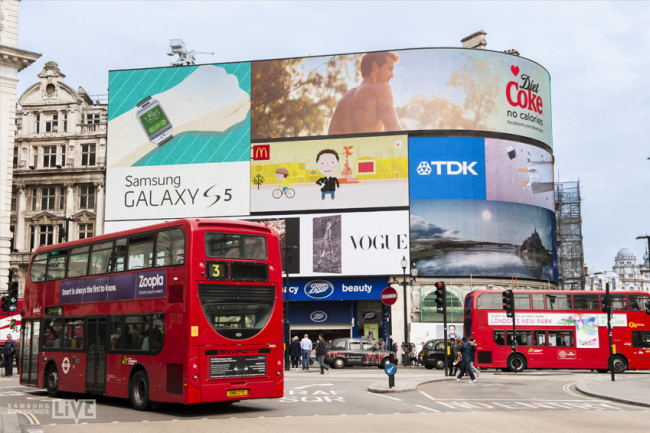The 1998 film “The Truman Show” depicts how a person can live without noticing that his whole life has been one gargantuan billboard.
Whether it is a carton of milk he drinks or something that he or his wife picks up from the floor, the everyday items in his life are exposed to tens of millions of viewers, attracting people’s attention and zeal to buy them. But the protagonist Truman Burbank does not realizethat he is a model in this 24-hour reality advertising show because his life as an advertising billboard makes perfect sense, and in a way, has been perfect.
And neither do we.
Whether it is a carton of milk he drinks or something that he or his wife picks up from the floor, the everyday items in his life are exposed to tens of millions of viewers, attracting people’s attention and zeal to buy them. But the protagonist Truman Burbank does not realizethat he is a model in this 24-hour reality advertising show because his life as an advertising billboard makes perfect sense, and in a way, has been perfect.
And neither do we.

Perhaps one of the greatest reasons the movie became a classic is because so many people can relate with those in the film who were enticed by the constant flow of advertisements so naturally, without resistance, and at some point wanted more.
Advertisements are everywhere ― from lampposts to TV, computer and mobile phone screens.
Some advertisements vulgarly beg you to remember their brands and products, while some delicately and sophisticatedly imprint the preference and favor for the product in the audiences’ subconscious.
The endorsement of female celebrities with desirable images can turn a product into an overnight sellout, while a well-built storyline of young and restless people drinking a caffeinated drink to pick themselves up leads people to hum along the jingle and buy the beverage on their way home.
According to ZenithOptimedia and other government data, the size of the country’s advertising market is estimated at $11.84 billion as of 2014, one of the world’s top 10. The TV commercial market alone is estimated at around 2.3 trillion won, according to separate research by the Korea Broadcast Advertising Corp.
And despite the global recession and what scholars call “stagnation,” the market is unlikely to decline, analysts said.
“Market conditions are getting better in a way. (The market) has been growing by 3 percent every year for the past couple of years and is expected to show better performance in the future because the government has eased several regulations that will boost investment,” said Kim Hoe-jae, an analyst at Daishin Securities.
All of this is due to the perception that people buy dreams through advertisements. As the famous Peter Nivio Zarlenga said, “In our factory, we make lipstick. In our advertising, we sell hope,” advertising is about leading people to dream a better life through purchasing products.
And to achieve this goal, advertising has become a game of hide-and-seek between some of the most talented, clever and perhaps astute people around the world, and the public who very much enjoy the creativity but at the same time try to minimize their exposure to advertisements and their influence.
This sometimes grows into discussions and disputes over the line between winning over people’s hearts and annoying them, and the ethical boundaries of advertising.
In this Weekender, The Korea Herald looks into the advertising world of Korea, from its history to the most memorable moments, and people behind it and our homework for the future, hoping that advertisements can be regarded as more than just a lure.
By Bae Ji-sook (baejisook@heraldcorp.com)
-
Articles by Korea Herald




















